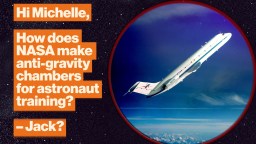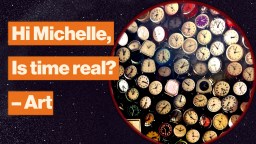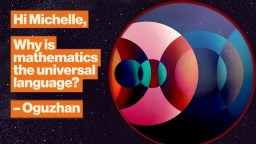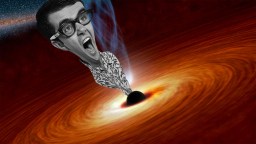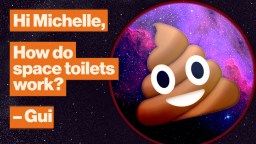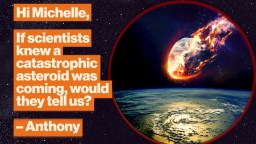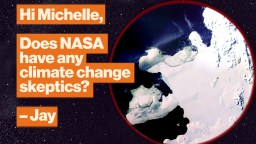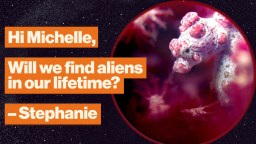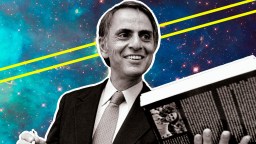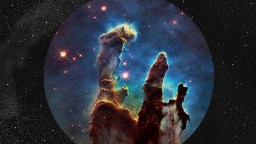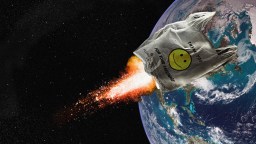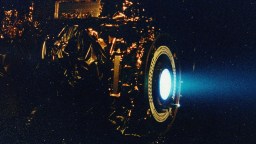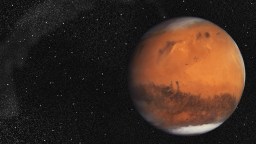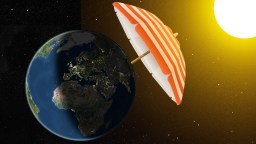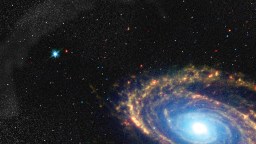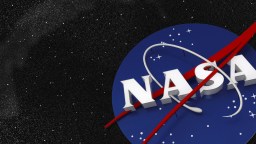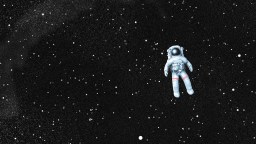Michelle Thaller
Assistant Director for Science Communication, NASA
Michelle Thaller is an astronomer and Assistant Director for Science Communication at NASA's Goddard Space Flight Center.

A lot goes into being weightless.
▸
4 min
—
with
Why is math the universal language? NASA’s Michelle Thaller solves that one.
▸
5 min
—
with
If the universe is expanding in all directions, why is Andromeda hurtling toward the Milky Way?
▸
4 min
—
with
Getting to close to a black hole is a nightmare waiting to happen.
▸
3 min
—
with
A NASA astronomer explains how astronauts dispose of their, uh, dark matter.
▸
2 min
—
with
If a doomsday asteroid is set to collide with Earth, you’re going to know about it – whether you want to or not.
▸
3 min
—
with
NASA’s Michelle Thaller explains how an accidental discovery led to the 1978 Nobel Prize in Physics.
▸
2 min
—
with
We’re finally here! We’ve been counting down the 10 most popular videos of 2018. This is #1…
▸
7 min
—
with
Astronauts will be able to harvest the Moon’s natural resources to sustain human life.
▸
3 min
—
with
NASA’s Michelle Thaller explains why the term ‘Big Bang’ is misleading, and how to best imagine the shape of the universe.
▸
4 min
—
with
Where is God? Michelle Thaller lays out a cosmic view of religion, science, and the human condition.
▸
5 min
—
with
Here’s the science of black holes, from supermassive monsters to ones the size of ping-pong balls.
▸
5 min
—
with
We may not find Klingons, but what we do find will blow our terrestrial minds.
▸
4 min
—
with
Around Halloween in 2015, astronomers discovered ‘The Goblin’. Now, it’s leading us to what some call Planet X.
▸
5 min
—
with
The thing that Carl Sagan did better than anybody else was connecting to the science through emotion and stories, says NASA’s Michelle Thaller.
▸
2 min
—
with
The universe is a huge place, inconceivably vast. And it can make even the most brilliant minds feel very, very small.
▸
4 min
—
with
We love citing the big names in science. Einstein. Curie. Sagan. Nye The Science Guy. But does that lower the bar for the rest of the workaday scientists out there?
▸
6 min
—
with
What role can art play in science? An unexpectedly important one, says NASA’s Michelle Thaller.
▸
4 min
—
with
Trash on earth is pretty bad. But space trash is at a whole other level.
▸
with
What are the different types of rocket engines and will there be a rocket engine coming in the future that uses very little energy? NASA’s Michelle Thaller explains.
▸
with
NASA’s Michelle Thaller shares her prediction of what it will take to get people to Mars, including what role Elon Musk will play in that effort.
▸
with
Can radiation in space limit human exploration? It’s a real challenge, explains NASA’s Michelle Thaller.
▸
with
Michelle Thaller from NASA examines if it’s possible to put up a giant disk to block out the sun’s rays and cool Earth.
▸
with
If we ever discover the true size of the universe, we’ll likely have galaxies to thank. The trillions of massive star clusters we’ve observed are sending light from the early universe back to us.
▸
with
With over 100 active science missions, from the Hubble Space Telescope to studying ice shifts on Earth, working at NASA can be a dream come true for any astronomer or astrophysicist.
▸
with
Astronauts aren’t floating in space, they’re free falling—and so are you. Here’s the amazing science behind so-called zero gravity.
▸
4 min
—
with
Stephen Hawking was one of the greatest scientific and analytical minds of our time, says NASA’s Michelle Thaller.
▸
6 min
—
with
We’ve known for 2,000 years that the Earth is round. Here are three observable proofs that can instantly debunk flat-Earth theory.
▸
7 min
—
with
